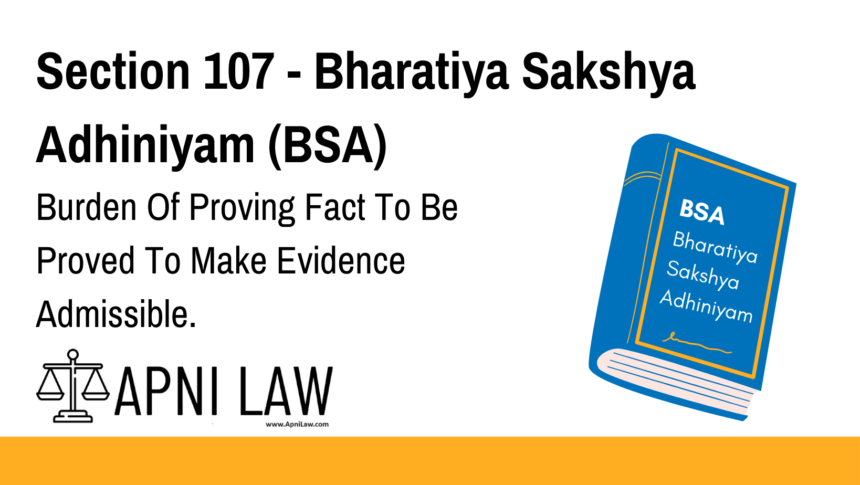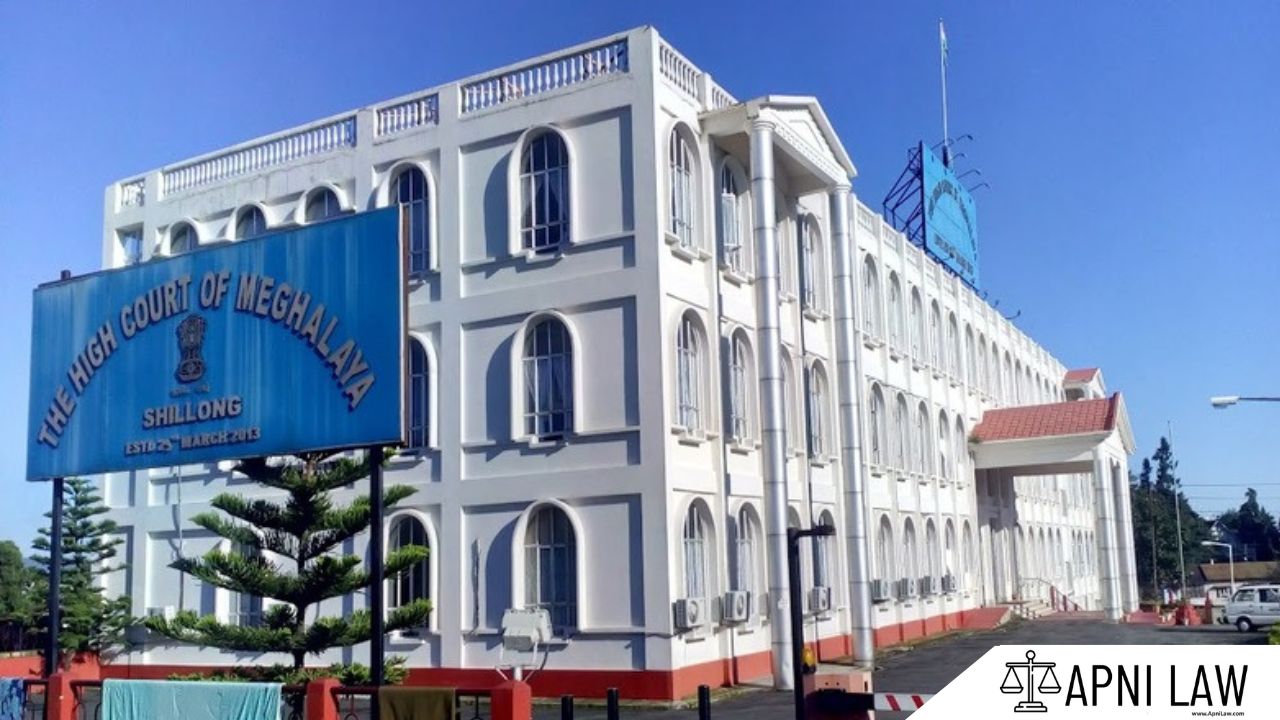Code: Section 107 Bharatiya Sakshya Adhiniyam, 2023
The burden of proving any fact necessary to be proved in order to enable any
person to give evidence of any other fact is on the person who wishes to give such
evidence.
Illustrations.
(a) A wishes to prove a dying declaration by B. A must prove B’s death.
(b) A wishes to prove, by secondary evidence, the contents of a lost document. A
must prove that the document has been lost.
Explanation of Section 107 BSA
Section 107 of the Bharatiya Sakshya Adhiniyam, 2023 focuses on the foundational facts that must be proven before certain types of evidence can be admitted in court.
This section establishes that if a person wants to submit a piece of evidence that depends on another fact being true, then that preliminary fact must be proven first. In simple terms:
- Before you introduce certain kinds of evidence, you must first establish the conditions that make it legally acceptable.
This principle maintains the integrity of the trial process by ensuring that only admissible evidence is considered by the court.
Key Points:
- It deals with “foundational facts” — facts that must be proven before other evidence can be introduced.
- The burden lies on the person who wants to present the dependent evidence.
- The section ensures that evidence isn’t admitted prematurely or without justification.
Illustrations
Let’s understand the official examples:
(a) A wishes to prove a dying declaration made by B.
→ Before presenting the dying declaration as evidence, A must first prove that B is dead. This is because the admissibility of a dying declaration depends on the declarant being deceased.
(b) A wants to introduce the contents of a lost document by using a copy or secondary evidence.
→ A must prove that the original document is indeed lost before the court allows the secondary evidence.
These illustrations make it clear that some types of evidence are only admissible when a necessary condition (a preliminary fact) is first established.
Common Questions and Answers on Section 107 BSA
- What is a “foundational fact” in the context of Section 107?
- A foundational fact is a preliminary fact that must be established before certain evidence can be introduced. For example, to admit a dying declaration, the fact of death must be established first.
- Who bears the burden of proving such foundational facts?
- The person who wishes to present the main evidence bears the burden of proving the foundational fact that makes it admissible.
- What happens if the foundational fact is not proven?
- If the foundational fact is not proven, the associated evidence becomes inadmissible and cannot be considered by the court.
- Does this section apply to all kinds of evidence?
- No, it specifically applies to types of evidence that are conditional in nature — such as dying declarations, secondary evidence, confessions, etc.
- How does this section maintain evidentiary integrity?
- It ensures that the court only considers evidence that meets the conditions set by law, thus avoiding misuse or premature reliance on unsupported materials.
Conclusion
Section 107 of the Bharatiya Sakshya Adhiniyam, 2023 plays a crucial role in determining when certain types of evidence can be admitted in court. It enforces the principle that a party must first establish any fact that forms the legal basis for admitting other evidence. This ensures fair trials and prevents the misuse of procedural shortcuts.
Legal professionals must be mindful of this rule when preparing evidence that depends on the existence of prior conditions.
For detailed legal insights and updates on Indian Evidence Law, visit ApniLaw.








